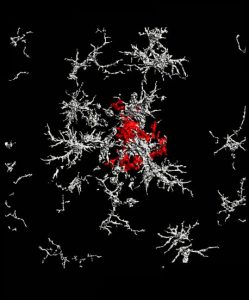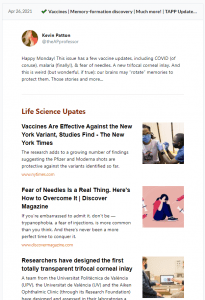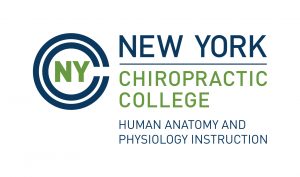Episode 92 is all about how we can use customer-service concepts in education. Tune in and hear Kevin Patton discuss the importance of being a good listener and empathetic responder. You’ll also hear about new research that shows not all plaques are bad actors when it comes to Alzheimer disease. And finally, find out how to get free almost-daily updates on life science, teaching, and learning!
- 00:00 | Introduction
- 00:53 | New Discovery about Plaque
- 08:33 | Sponsored by AAA
- 09:51 | New TAPP Science & Education Updates
- 15:23 | Sponsored by HAPI
- 16:45 | Are We Answering Student Questions?
- 30:52| Sponsored by HAPS
- 31:40 | Power Skills for Answering Students
- 40:19 | Staying Connected
If you cannot see or activate the audio player click here.
Apply for your credential (badge/certificate) for listening to this episode.
Please take the anonymous survey: theAPprofessor.org/survey
Questions & Feedback: 1-833-LION-DEN (1-833-546-6336)
Follow The A&P Professor on Twitter, Facebook, Blogger, Revue, Tumblr, or Instagram!
Get the almost-daily TAPP Science & Education Updates
The most basic of all human needs is the need to understand and be understood. The best way to understand people is to listen to them. (Ralph Nichols)
New Discovery about Plaque
7.5 minutes
In teaching A&P, it's not our objective to dive too deeply into pathophysiology. But we do use it as a tool to help students understand and apply concepts of "normal" structure and function. A new discovery about plaque's role in Alzheimer disease—or perhaps what is NOT its role—is a story that at once helps students make clinical applications, lets students know more about the vital functions of glial cells, and gives a glimpse of contemporary scientific discovery.
- Plaque Protect: Study Makes Surprising Finding About Alzheimer's Hallmark (summary article) my-ap.us/3aJFzCy
- In surprising twist, some Alzheimer’s plaques may be protective, not destructive (announcement from Salk Institute) my-ap.us/2S9BvW5
- Microglia use TAM receptors to detect and engulf amyloid β plaques (research article from Nature Immunology) my-ap.us/3eBEf5S
- Image: dense-core amyloid-beta plaque (red) surrounded by microglia (white) [Credit: Salk Institute] my-ap.us/3gFlp0l
Sponsored by AAA
1.5 minute
A searchable transcript for this episode, as well as the captioned audiogram of this episode, are sponsored by the American Association for Anatomy (AAA) at anatomy.org.
Don't forget—HAPS members get a deep discount on AAA membership!
New TAPP Science & Education Update
5.5 minutes
You may (or may not) remember that Nuzzel newsletter I've had going a couple of years. It was an almost-daily curated list of headlines of interest to anatomy and physiology faculty (and, I've discovered, some random non-A&P folks who just like the content). Well, Nuzzel is suddenly shutting down it's newsletter function and so I've switched to Revue by Twitter. Here's how to subscribe (it's free) if you're not already subscribed:
- The A&P Professor Science & Education Updates theAPprofessor.org/updates
Sponsored by HAPI Online Graduate Program
1.5 minute
The Master of Science in Human Anatomy & Physiology Instruction—the MS-HAPI—is a graduate program for A&P teachers, especially for those who already have a graduate/professional degree. A combination of science courses (enough to qualify you to teach at the college level) and courses in contemporary instructional practice, this program helps you be your best in both on-campus and remote teaching. Kevin Patton is a faculty member in this program. Check it out!
Are We Answering Student Questions?
14 minutes
No, really. Am I really answering what each student wants to know? Or am I simply reacting to key words or phrases without really listening to the specifics of each student question. This segment asks us to consider using some customer-service (gasp!) techniques to make sure we're not leaving our students alone and frustrated.
- Some previous episodes that touch on the customer-service model and student questions
- Information on TextExpander—a tool for quickly inserting saved snippets of text (I am an affiliate)
- The Case for Case Studies | Episode 52 (has a segment discussing TextExpander
- theAPprofessor.org/textexpander
Sponsored by HAPS
1 minute
The Human Anatomy & Physiology Society (HAPS) is a sponsor of this podcast. You can help appreciate their support by clicking the link below and checking out the many resources and benefits found there. Watch for virtual town hall meetings and upcoming regional meetings!
Power Skill for Answering Students
8.5 minutes
Starting with some "power phrases" from a recent article, we explore some words and phrases to use when answering student questions.
- These 7 phrases can help you sound more powerful at work (article mentioned in this segment) my-ap.us/3eykP1N
If the hyperlinks here are not active, go to TAPPradio.org to find the episode page.
- More details at the episode page.
- Transcript available in the transcript box.
- Listen to any episode on your Alexa device.
- Need help accessing resources locked behind a paywall? Check out this advice from Episode 32 to get what you need! https://youtu.be/JU_l76JGwVw?t=440
Take The A&P Professor experience to the next level!
The A&P Professor community
Earn cash by referring other A&P faculty to this podcast:
theAPprofessor.org/refer
Tools & Resources
- TAPP Science & Education Updates
- Amazon
- Text Expander
- Rev.com
- Snagit & Camtasia
- Krisp Free Noise-Cancelling App
- The A&P Professor Logo Items
Sponsors
- Transcript and captions for this episode are supported by the American Association for Anatomy | anatomy.org
- The Human Anatomy & Physiology Society provides marketing support for this podcast | theAPprofessor.org/haps
- Distribution of this episode is supported by NYCC's online graduate program in Human Anatomy & Physiology Instruction (HAPI) | nycc.edu/hapi
Clicking on sponsor links helps let them know you appreciate their support of this podcast!
Follow The A&P Professor on Twitter, Facebook, Blogger, Revue, Tumblr, or Instagram!
The A&P Professor® and Lion Den® are registered trademarks of Lion Den Inc. (Kevin Patton)
As an Amazon Associate I earn from qualifying purchases. I may be compensated for links to sponsors and certain other links.
Click here to listen to this episode—or access the detailed notes and transcript.








No comments:
Post a Comment